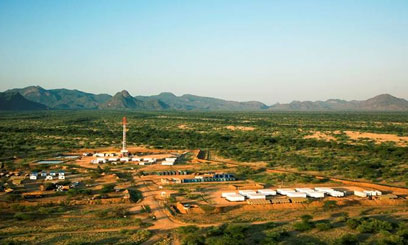Oil industry expert Patrick Obath said on Tuesday that Kenya should borrow a leaf from Norway which has about $600 billion in its sovereign wealth-fund which has been used to turn around the fortunes of that country.
“Instead of getting the money and spending it, you either refine the oil and export it and anything you get out of that oil, you take as cash and invest. It’s like having the oil forever,” Obath said of the fund.
While the benefits to be accrued from this model would take several years to manifest, Obath, who’s also the lead Consultant for Eduardo Associates, a private practice consultancy specialising in energy, engineering and health said it would provide a pool that can be used to supplement the national budget.
Speaking on Capital In the Morning, Obath said if the oil’s commercial viability is determined, having such a fund would help the country manage profits generated from oil and other natural resources as well as people’s expectations.
On Monday, the government announced that Kenya has struck oil in Turkana County in Rift Valley Province joining the league of states in the East African region that are endowed with this resource. If it’s determined that there are large quantities that can warrant commercial production, then it would take at least six year before this can be undertaken.
The light waxy crude oil has the same properties as that found in Uganda and South Sudan prompting calls for the region to consider building joint infrastructure to benefit from economies from scale.
“Each country is talking about developing their own refinery or exporting their own oil. But these are expensive ventures for these countries and so why don’t we invest in a value-add as one group and put up a world-class facility that we are all going to invest in,” he proposed.
Doing so would see the unit cost (of production) lowered making the region’s products competitive.
But even as this idea is floated, another expert cautioned that as the country looks forward to the commercial production, the government needs to have proper structures in place that will aid in harnessing this potential.
Petroleum Institute of East Africa (PIEA) General Manager Wanjiku Manyara told Capital FM Business that this includes having favourable legislations and Production Sharing Agreements that benefit both the government and the local communities.
And as the country embarks on this journey of being an oil producer, she said it can draw lessons from states such as Uganda, Nigeria and Angola on the best practises to adopt and the pitfalls to avoid.
“A country like Nigeria has had to work backwards because they made very many mistakes; a lot of the oil and gas exploration and production was also used as a political tool and so it is important to ensure that we have policies that are able to effectively manage not just oil and gas but any other resources that will be discovered in the country and in the region,” the PIEA General Manager emphasised.
Closer home, Uganda, which discovered oil in 2006, has seen disagreements in oil deals delay commercial production which should serve as a lesson to Kenya to have its Production Sharing Agreements in order.
Pointing that the discovery of oil in Turkana confirms that East Africa is the next oil frontier, she anticipated that the bloc is likely to attract a lot of attention from the international community as it is likely that going forward, it will be the zone that bails out the big consumers.
“It will actually be reversed roles but it will be important that we have the right frameworks so that we can maximise on that so that we benefit from discoveries such as this,” Manyara challenged.
While pointing to the likely scenario that the petroleum sector is likely to be a key contributor to the economy in coming years, she was however, quick to point out that the country should not abandon its ongoing development projects to solely focus on oil production.
“Life must go on as usual. Let the revenues that accrue from this find come and support what we are already doing,” she warned.
Given that many skilled professionals will be needed in upstream activities, Manyara said PIEA was well positioned through offering courses that will enable the country tap into this potential.
Kenyans will be hoping that the oil’s commercial viability is determined which portends a myriad of benefits to the economy chief among them the reduction of the petroleum imports which accounts for about 22 percent of the national import bill.




































